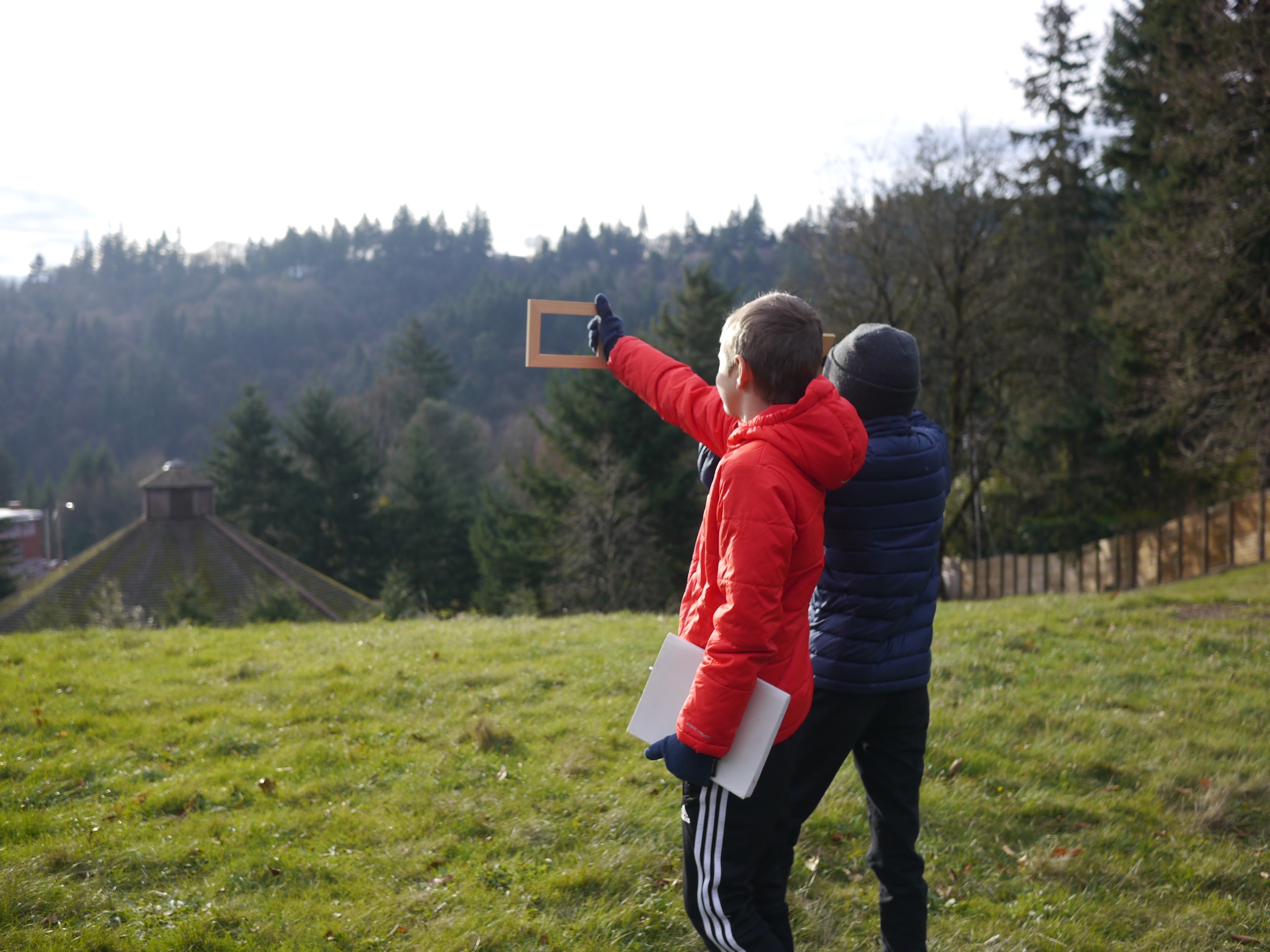The Class of 2015

Today was the final day of the 2014-’15 school year, and tonight we celebrated the Class of 2015. From the podium, three of the students reflected on what they saw as the most important things they learned at Opal School. What they said tonight seems important for others to hear:
DW: Sometimes it’s really hard to do this, but one of Opal’s goals is to teach children to be aware of other people’s emotions and how to act based upon how they’re feeling. If you’re having a conflict you really need to take the perspective of the other person even if it feels hard because you’re so wrapped up in your own idea.
Taking another person’s perspective is very important because they may look one way on the outside but you have no idea what they’re feeling on the inside. Without asking their inside story, you make assumptions which can lead to relationships and hearts being broken. Take a step back and think about the other person and what they may be experiencing.
I have a lot of friends from different schools who aren’t aware of other people’s emotions and feelings. I worry about going into an environment like this and I am curious what it’s going to be like when I see conflict happening but I know I can show people another way. I hope that other people will catch on by seeing the way I act and that I can offer others a new perspective on being aware.
BC: People’s stories are probably one of the most valuable things you have in life. If you want to have a relationship with someone or feel something with someone you need to be able to understand their story. Opal has taught me how to do that- the when, why and who of relationships and caring about someone and their story. I have learned how important stories are and how vividly they can change lives.
We’ve been talking about how we can connect the stories of history to our public and private lives. Our public life is our outside appearance and what people think of us when they see us, their impression of us. I feel like our private life is our story, what we think about ourselves and what we are, not always what people see. Connecting history to our public and private lives is crucial because it allows us to look back on what we as a human race may have forgotten. Learning from the past helps us know what to do in the future.
There will never be a world without problems or mistakes, but looking back to the past and seeing the stories helps you realize the consequences of decisions people made. Mistakes are opportunities for learning.
Once you understand another person’s story, you will be changed. Once you come to care about and understand another person, there is love. You carry everyone else’s stories with you and that helps you see the world differently.
NT: At Opal we think a lot about how to communicate ideas. When you have an idea- one of the big parts of growing that idea is putting it into a new language in art or words. It’s like translating. It’s a really important part because if you can’t do that nobody else can share the amazingness of your idea. Translating ideas helps other people to understand your ideas better.
Over my time at Opal I’ve learned how to do that more. Before, I had a lot of knowledge but I didn’t know how to put it out there, how to say my idea or know what I could use as tools to help me do that. A lot of times here, there is watercolor or blackline pens to help us express ourselves.
Before you translate your idea through words or materials, you know it’s there but you don’t know what it is or how it works. As you change your idea into something you can say or see that other people can understand, then you sort of understand it better yourself. It’s a way of understanding not just for other people, but for yourself. You can think you understand something but when you translate it into another language you really understand it more- what it is, compared to what you initially thought it was, is so different… One of the gifts of Opal is learning how to translate your ideas from only being in your head to being something that’s part of the community.
Thanks to the Class of 2015 – and to all Opal School students – for expanding our image of children and our understanding of conditions that sustain creativity, curiosity, and the wonder of learning.
